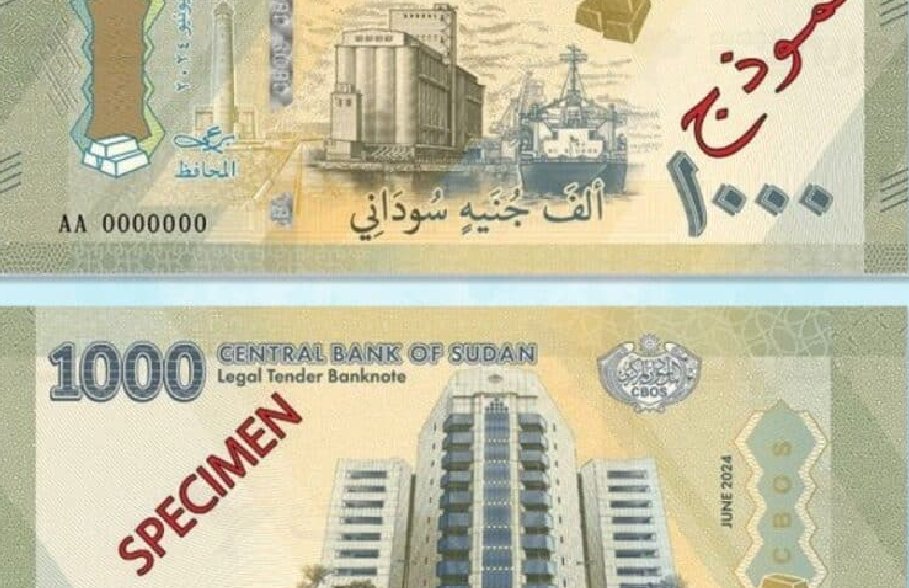By Horn Africa News
Khartoum – The Sudanese pound has plunged to a historic low against the U.S. dollar, traders confirmed Wednesday, accelerating a surge in the cost of basic goods and intensifying a growing hunger crisis across the war-ravaged country.
The latest depreciation of the local currency comes as millions of Sudanese grapple with the devastating impact of an ongoing civil war that has shattered livelihoods, crippled state institutions, and left large swathes of the population teetering on the brink of famine.
According to dealers in Khartoum, the dollar is now trading at 3,345 Sudanese pounds on the parallel market—up sharply from 2,600 pounds just three weeks ago. The UAE dirham and Saudi riyal are also climbing, trading at 930 and 860 pounds respectively. Even the official bank rate fell, with the U.S. dollar listed at 2,400 pounds.
The consequences have been immediate and devastating. In the eastern city of Gederaf, a 50-kilogram sack of sugar now sells for 180,000 pounds, up from 130,000 pounds just days earlier. Other staples such as wheat, cooking oil, and flour have also recorded steep price increases.
“The situation has become unbearable; I cannot provide for daily needs,” said Mohamed Al-Farouq, a resident of Ad-Dindar in Sennar State. “Shops have stopped selling on credit, leaving thousands of citizens face to face with hunger.”
The economic crisis has also crippled remittance systems that many Sudanese families rely on. Informal money transfer offices run by the diaspora in Egypt, home to more than 1.5 million Sudanese refugees, have suspended operations. In Uganda, traders are reportedly refusing to accept Sudanese pounds altogether, demanding U.S. dollars instead.
Structural Collapse Behind Currency Crisis
Experts say the currency crash is the result of deeply rooted internal challenges, worsened by the conflict that erupted in April 2023 between rival military factions.
Economist Haitham Fathi noted that war profiteers and currency speculators are exploiting the government’s urgent need for foreign currency to import essentials—including fuel, wheat, and military equipment.
“The dollar reaching this record level, despite its decline globally, signals a deeply local crisis caused by structural dysfunction,” Fathi warned. “We are heading toward runaway inflation and a further deterioration in living conditions.”
Mohamed Alnayer, another Khartoum-based economist, pointed to the absence of a functioning central government and the inability to circulate high-denomination banknotes in key regions like Khartoum and Al-Jazira. He urged authorities—where possible—to ban non-essential imports and redirect foreign reserves toward stabilizing essential sectors.
A Nation on the Edge
Sudan has long depended on imports to meet domestic demand for food, fuel, and medicine. But the war has drained public finances, disrupted supply chains, and redirected resources to finance advanced weaponry—further stretching an already fragile economy.
With displacement rising and inflation spiraling, humanitarian agencies warn of a looming famine unless immediate international support and internal stabilization measures are enacted.
As the pound continues to freefall and shops empty of affordable food, many Sudanese fear the worst is yet to come.




